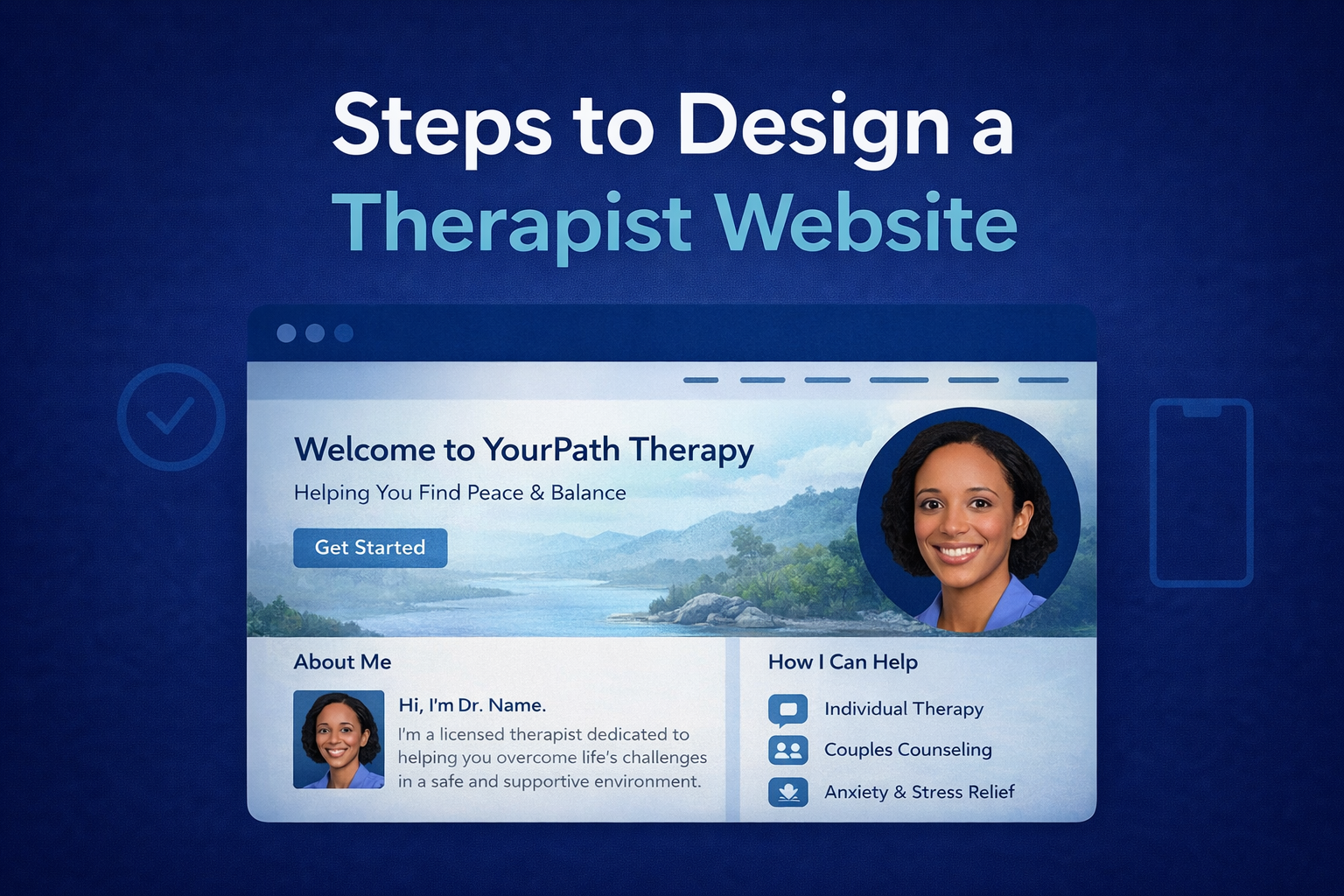Growing a mental health therapy practice requires more than just exceptional clinical skills—it demands visibility. With more individuals turning to search engines like Google to find local therapists, mastering Local SEO (Search Engine Optimization) has become essential for mental health professionals, and companies like Mental Health IT Solutions are paving the way by offering tailored strategies to enhance online presence. By optimizing your practice to rank higher in local search results, you can attract more clients from your community, build trust, and establish a sustainable practice. This comprehensive guide dives into the top Local SEO strategies every therapist needs to know to thrive in a competitive market.
Understanding Local SEO for Therapists
Local SEO focuses on improving your visibility in location-based searches, ensuring your practice appears when someone searches terms like “therapist near me” or “mental health services in [city].” It’s tailored to geographic relevance, making it perfect for therapists who serve specific communities, whether through in-person sessions or teletherapy.
For mental health professionals, Local SEO is critical because it connects you with clients who value proximity, trust, and accessibility. With the right strategies, you can stand out in your area and grow your client base effectively.
Essential Local SEO Strategies for Therapists
To succeed with Local SEO, you need a strategic approach. Below are the top strategies to implement for your mental health therapy practice.
Optimize Your Google Business Profile
Your Google Business Profile (GBP) is the foundation of Local SEO. It’s what appears in Google Maps and the Local Pack, making it a prime opportunity to attract local clients.
Steps to Optimize Your GBP
- Claim and verify your profile to establish ownership.
- Fill out all details, including your practice name, address, phone number (NAP), website, and hours.
- Choose accurate categories like “Therapist” or “Mental Health Service.”
- Upload high-quality photos of your office or teletherapy setup.
- Encourage clients to leave reviews and respond to them thoughtfully.
A strong GBP can skyrocket your visibility. Learn more in this guide to building a strong online presence.
Build a Locally Focused Website
Your website is your digital hub, and optimizing it for local searches ensures it ranks well for relevant queries.
Website Optimization Tips
- Use local keywords like “therapist in [city]” in your content and meta tags.
- Create location-specific pages if you serve multiple areas (e.g., “Counseling in Fresno”).
- Ensure your site is mobile-friendly, as many searches happen on phones. See how a fast, mobile-friendly website boosts growth.
- Add a Google Map to your contact page for easy access.
Check out this guide to optimizing your mental health website for more details.
Conduct Local Keyword Research
Keywords drive search visibility. Targeting the right local terms can make your practice more discoverable.
How to Research Keywords
- Use tools like Google Keyword Planner to find terms like “depression therapist in [city].”
- Focus on client intent with phrases like “anxiety counseling near me.”
- Study competitors to identify gaps you can fill.
Incorporate these keywords strategically. Dive deeper with The Ultimate Guide to SEO for Psychologists.
Harness the Power of Reviews
Online reviews boost your Local SEO rankings and build credibility with potential clients.
Review Management Tips
- Request reviews from happy clients after sessions.
- Respond to all reviews—positive or negative—with professionalism.
- Display testimonials on your site (with consent).
Explore more in this article on online reputation management in mental health.
Leverage Local Citations
Citations are mentions of your practice’s NAP across the web. Consistency here strengthens your Local SEO.
Building Citations
- List your practice on directories like Psychology Today and Yelp.
- Keep NAP details uniform across all platforms.
- Target mental health-specific directories for niche exposure.
Learn more in this guide to online marketing for therapists.
Why These Strategies Work for Therapists
These Local SEO strategies are tailored to the unique needs of mental health professionals, offering distinct advantages.
Reach Clients Where They Are
Local SEO targets individuals actively seeking therapy in your area, ensuring your marketing efforts hit the mark.
Maximize Your Budget
Unlike expensive ads, Local SEO provides lasting results with minimal upkeep, making it cost-effective for private practices.
Establish Credibility
High local rankings and positive reviews position you as a trusted provider, critical in a field built on trust.
Support Teletherapy Growth
Even virtual practices benefit from Local SEO by targeting state-licensed clients. Learn how with marketing teletherapy services.
Implementing Your Local SEO Plan
Ready to get started? Here’s how to put these strategies into action.
Begin with an Audit
Evaluate your current Local SEO standing to pinpoint areas for improvement.
Audit Checklist
- Is your GBP fully optimized?
- Does your website reflect your location?
- Where do you rank for local searches?
Create a Localized Website
Build a site that speaks to your community while meeting HIPAA standards. See HIPAA-compliant web design tips.
Must-Have Features
- Clear NAP on every page
- Service pages with local focus
- Blog posts on regional mental health topics
Boost Visibility with Content
Content marketing enhances rankings and authority.
Content Ideas
- “Top Mental Health Tips for [City] Residents”
- “Finding Therapy in [Region]”
- “Local Stress Triggers and Solutions”
Get inspired by content marketing strategies for mental health.
Engage Locally on Social Media
Social platforms complement Local SEO by fostering community connections.
Social Media Tactics
- Highlight local mental health events (e.g., World Mental Health Day).
- Use location tags in posts.
- Interact with local followers.
Track and Refine Your Efforts
Ongoing monitoring ensures your strategy stays effective.
Useful Tools
- Google Analytics for traffic insights
- Google Search Console for keyword performance
- Review platforms for feedback
Pitfalls to Avoid in Local SEO
Steer clear of these common mistakes to maximize your results.
Inconsistent Contact Details
Discrepancies in NAP across platforms can tank your rankings.
Skipping Mobile Optimization
A non-mobile-friendly site alienates clients searching on the go.
Neglecting Reviews
Ignoring reviews misses a chance to build trust and improve rankings.
Generic Keyword Focus
Using broad terms instead of local ones limits your reach.
Tracking Your Local SEO Success
Measure your progress with these key metrics:
- Local search rankings for target terms
- Website traffic from local visitors
- New client inquiries from search
- Growth in reviews and ratings
For more on visibility, see how to boost your clinic’s online presence.
The Future of Local SEO for Therapists
Local SEO is evolving with technology. Stay ahead by adapting to trends like:
- Optimizing for voice search (“best therapist near me”)
- Enhancing teletherapy visibility
- Using AI for smarter keyword targeting
Explore more in the future of teletherapy.
Conclusion
Local SEO is a must-know for mental health therapists looking to grow their practice. By optimizing your Google Business Profile, building a localized website, leveraging reviews, and engaging your community, you can attract more clients and solidify your reputation. Start with these strategies today, and watch your practice flourish in the digital age. Need help getting started? Reach out to the experts at Mental Health IT Solutions via their Contact Us for personalized support.







